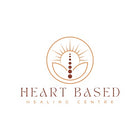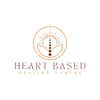When you hear the word "Reiki," do you immediately wonder what it means? In this article, we will go further into Reiki Healing Energy and discuss its meaning, its history as alternative medicine, the conditions it may alleviate, and exactly what a Reiki Treatment comprises.
Background
In the 1920s, Japanese doctor Mikao Usui came upon a healing force he named Reiki. Dr Usui advocated for Reiki, a practice that can be utilised as a treatment for various mental, physical and emotional health issues.
What is Reiki?
This method includes laying of hands, above or on the recipient's body, to restore the patient's energy balance and boost their immune system, and it promotes relaxation, reducing stress and anxiety.
How Does It Work?
The natural healing practice of Reiki is very mild and safe. A calm, relaxing environment is ideal for reiki treatments. With Reiki, there are a series of hand positions after which most practitioners allow some time for intuitive hand placement, based on the energetic field of the recipient. Although traditionally performed in person, if the Reiki practitioner can “connect” with the recipient, Reiki can also be done remotely, often on-line through Zoom or a with picture of the recipient.
When receiving a treatment you may experience a range of sensations, or just a deep relaxation. You may see colours and feel warm or cool temperature changes anywhere on your body throughout a session, whether in person or online. You may also experience tingling, numbness, or muscle spasms as energy moves through your energy fields. You'll probably feel calm and sleepy afterwards. Many people who have had a reiki treatment say that the meditative state it induces lasts long after the session has ended (15–90 minutes), and often sleep deeply that night.
What Health Situations Can It Benefit?
It is the belief of Reiki practitioners that blocked energy in the body must be released so that it may circulate freely. A patient's mental and physical suffering can result from an energy imbalance or blockage. A Reiki treatment aims to facilitate the body's natural healing systems by opening blocked energy channels.
Conventional medical treatment may be draining and impersonal for many individuals with severe illnesses. A session of Reiki, in the interim, might be a beneficial supplement to the patient's standard medical care. Cancer patients undergoing treatment and anybody else facing significant pain or stress can benefit from Reiki's calming and pain-relieving effects.
Depressive disorders were treated in a 2010 study using Reiki treatments. The benefits of Reiki on pain, sadness, and anxiety in older adults were investigated in a short study. Health, happiness, and the absence of bodily symptoms all improved in the patients. The patients reported feeling calmer, more open-minded, and with a greater capacity for self-care.
Reiki was compared to physical therapy in a 2018 study for its ability to alleviate low back pain caused by herniated discs. Similar pain relief effects were seen across the two therapies; however, Reiki was shown to be less expensive and, in certain circumstances, to have a quicker recovery time.
In a 2015 study, they discovered that cancer patients whose treatment included both conventional medicine and distant Reiki had reduced pain, reduced anxiety, and reduced exhaustion. The women reported a feeling of calm, tranquillity, and relaxation, along with an increase in sleep, self-confidence, and depression.
Women who had a caesarean delivery in 2015 were also studied for their reactions to Reiki. Within 72 hours of surgery, patients reported a dramatic decrease in pain, anxiety, and respiratory rate. There was also less demand for analgesic pain relievers.
Assume someone decides to have surgery. In such a circumstance, Reiki could be beneficial after surgery, as it is a powerful aid to natural healing and speeds up the recuperation period.
What to Expect In a Treatment
After your Reiki session, it's important to replenish your fluids by drinking plenty of water. After receiving Reiki, some individuals report feeling uplifted, calm, and energised. Some people experience a sense of serenity and tranquillity, while others can feel fatigued.
What Can Reiki Do For You?
- Restore your mental health by finding a newfound feeling of peace.
- Restore health to your physical body, mental faculties, and emotional state, all while strengthening your bond with yourself and your self-assurance.
- Your physical and mental health will be restored, and you will no longer feel trapped by your pain and misery.
- Feelings of peace and contentment can be regained by refocusing and balancing one's physical and mental energies.
- Refresh your perspective on life and make you feel as if a heavy burden has been lifted from your shoulders.
Heart Based Healing Centre
Reiki energy healing can help you whether you're facing mental or emotional distress, physical pain, or want to feel more balanced overall. We have found success at Heart Based Healing Centre in assisting our patients in attaining a deeper feeling of inner peace, calm, and meaning in their lives.
Please don't hesitate to contact us immediately if you are searching for a treatment that can help you rediscover your authentic self.










